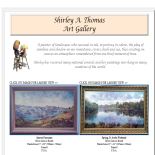January Stats - 8065 Pageviews from 3530 unique visitors. www.tearoha-info.co.nz/HolidayPark Our most visited index pages, in order of popularity were:- ACCOMMODATION - INFORMATION - BUSINESSES - ACTIVITIES - DINING - REAL ESTATE - CLASSIFIEDS. Site of the Month is Wairere Falls Farm Cottage and they receive a free direct click through and feature image from www.tearoha-info.co.nz to their website. |
Comprehending Website Advertising Tweet |
Small and medium size businesses too often look to the huge corporations to emulate their ideas when they in fact have very little in common. Personally having many years sales and marketing experience and with all WWW Design clients falling into the small to medium business this article aims to put some of these issues into perspective. If your business is large enough and you have the money available, there are numerous marketing initiatives you can invest in, but if, like most, you have a limited marketing budget you need to be clever when parting with your advertising dollars, and without doubt, the most effective and cost efficient place to spend your advertising budget is on your website. You need to attract visitors to your website, but if, once they arrive, they find it lacks interesting, engaging and relevant content, then you've wasted your money. So what strategic approach should you take to present your marketing message? Saturation Advertising A good illustration of saturation advertising is the constant repetition of commercials on TV – the same ads repeated over and over again until they become irritating and no matter what you do to avoid them, they eventually get stuck in your head. Saturation advertising depends on repetition not quality which explains why some of the most ridiculous ads are very effective and when it comes down to it, television advertising is all about repetition not quality. Does Saturation Advertising Work? Yes, at least for a television audience it does - most people believe that it works on others but not on the - an occurrence psychologists refer to as the Third Party Effect. It’s quite simple, repeating something inevitably makes it appear more convincing. It is also a fact that inattention doesn’t protect you from the affects of repetition – bad ads are more effective if the audience isn’t really paying attention as conceptual, technical and performance issues are not so noticeable. Will Saturation Advertising Work For You? Saturation advertising is generally expensive because it relies on extensive media buys in order to get the required number of repetitions needed to worm its way into the viewer’s collective consciousness. It's a advertising tactic that needs large expenditure and is therefore ruled out for most small to medium businesses. Promotions that depend on constant repetition simply won’t work on the Internet unless it's used to enhance an existing extensive integrated TV and print campaign. Another good example of saturation advertising is the music industry – constant repetition of a song, even of inferior quality but with some rhythmic value and a repetitive catchy chorus can become a hit if heard often enough on the radio or on a TV music video. Like most saturation advertising it is controlled by whoever has the most money available to purchase audience access. The same holds true for political advertising. Politicians can get away with the most incredible twaddle if they have the money to obscure their opposition. The Internet is a different communication environment compared to TV. Where television and the Web converge is with programming: your website is not an advertisement, or at least it shouldn't be if you want it to be effective; your website should be the equivalent of the programme not the advertisement – quite simply the key to the success of your website is the skill to turn advertising into content, and content into a memorable experience. You should engage your visitors with the same kind of techniques and messaging that are used in the programmes you watch on TV and not in the ads you try to ignore. If you can't saturate the market with your brand then you have to find a better, more cost effective way to influence your visitors. You should start with your brand rather than your product or service so that your advertising can promote and grow your company using a long-term marketing strategy rather than one or two promotional ads about a particular product, service or event. Using only a promotional format can lead to customers only purchasing goods and services when they are on sale and that is going to make it difficult to make money on a lasting basis. We all know how popular the Google AdWords programme is and we all also know how costly it can be to gain access to the keywords that trigger your ad placement. The Google system is essentially relying on the same principle as TV advertising - big audiences and lots of placements equals lots of leads. In addition to the continuous expense, the problem is that even if you attract a large initial audience, that audience will not necessarily stick around long enough to get your brand story if that story is not as least as interesting and entertaining as the television programmes they watch. Even if that audience does stick around for a while, if your website doesn’t remain interesting, you will lose your potential customers – your website audience are not captive like a TV audience – it is up to you to ensure that your website captures them! For most businesses (both web-based and brick and mortar) their website is their best and potentially most effective advertising avenue, but people only go to websites that interest them, and they will leave in an Emotional Advertising “The emotional brain responds to an event more quickly than the thinking brain.” Daniel Goleman We all think of ourselves as a rational, intelligent human beings, but in reality, we are all motivated by emotional triggers. Our brains absorb and process information without us even being aware of it, they produce instructive responses to external stimuli and our survival and dominance as a species depends on this ability. Successful long-term marketing strategies depend on an emotional brand association with basic Maslowian needs (in a nutshell - human needs come first followed by financial considerations) No matter what your business your competitors will attempt to undercut your prices, add new and better features, or come up with superior alternative solutions. The business world is besieged with the corpses of once proud companies that dominated their markets until someone came along offering something better, cheaper, or just different. A good example of this is once proud Kodak which has been humbled and downsized considerably because they saw themselves as a film company and cameras as simply a way to sell more film, but of course we’ve all gone digital now. Products and services come and go, but brands are forever and are defined by their emotional appeal. Coming up with the right brand message can be complicated. We know the motivational triggers that people respond to, so the objective is to find the right trigger for your company's strategic vision and to frame it in terms that your target audience will accept. Knowing that your audience sees itself as rationally motivated is not a barrier to emotional, motivational triggering. It is all a matter of framing the brand and providing the right context and association in your advertising and messaging initiatives, and most importantly on your website. In conclusion A company without emotional association is a company without soul, and it is one that will eventually be superseded by those who understand the importance of brand and how emotional advertising works. |





 More money is misspent on advertising than any other business activity. Those responsible for the advertising budgets often don’t fully understand how advertising works. There are many ways to typify advertising, but basically there are two clear-cut approaches namely saturation and emotional.
More money is misspent on advertising than any other business activity. Those responsible for the advertising budgets often don’t fully understand how advertising works. There are many ways to typify advertising, but basically there are two clear-cut approaches namely saturation and emotional.


